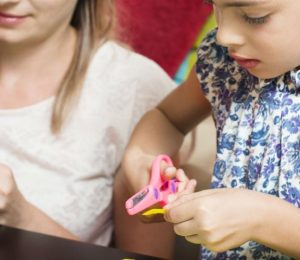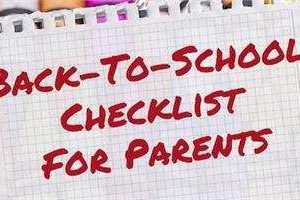We parents place a certain faith in the educational system when we send our kids off to school each day. But it can be hard to know what’s really happening in the classroom. Is the teacher doing his or her job effectively? Are we doing enough or enough of the “right” things as parents to help our kids learn?
We asked teachers about things they think parents should know—to address some of the most common issues they see with kids and parents.
Here are some important things teachers want parents to know:
“Put a lot of time and energy into teaching your child to be kind, respectful, thoughtful, and compassionate. Being the best hockey player, an incredible dancer, a truly outstanding artist, or the most successful student in school really doesn’t matter if they know nothing about kindness.”
—Vicki, Grade 6 English language arts and math teacher
“Be involved in your child’s learning. Checking in and talking to your kids on a regular basis about what they are learning and how they are doing in school, is key. For example, review their notebooks and teacher feedback together often. This will tell you about them as a learner and where they need extra help.
Also, learning skills (organization, responsibility, collaboration, etc.) are often more important than specific grades in subjects. Success in these will lead to success in different subject areas, and success in the workplace.”
—Natalie, Grade 5 French immersion teacher
“Be honest. I really wish parents knew that they can be honest with me. The more open the relationship between the teacher and parent, the more successful the child’s school year can be.
If on Tuesdays you’re running around like crazy from swimming to volleyball to soccer, just let me know so I have a heads up that Wednesday mornings might be harder. If your child is struggling with a reading assignment that I send home, tell me so we can adjust it. If I send home a note and mention a hiccup in the day (pushing, tantrums, toileting accidents) and it’s something you’ve seen at home, don’t hide it. (And don’t tell me your child is sick when you’re really going on vacation—this is something your child picks up on and can make them more comfortable with lying themselves.)
The more information we have to work towards a solution, the better. I won’t judge. I care about your kids too, maybe not even 1/1000th the amount you do, but I still care a lot!”
—Jaime, kindergarten special education teacher
“When helping with schoolwork, talk less and listen more. Teachers and parents (including me) can try to teach children directly too early how to ‘do’ a math problem instead of helping them to build their own problem-solving capacity and knowledge, and thereby their own confidence in math.
When an adult and a child are engaging around a math problem, I think it’s best if the adult says something along the lines of ‘I’m interested in how you solved this. Tell me about your thinking’—whether or not the answer is correct and accurate. (Then, ‘Say more about that’ to keep them talking.) If the adult can listen actively and deeply, they will probably learn a lot about how and what the child understands in the problem.”
—Jonathan, Grades K–2 math teacher
“Read with your child every night. Even if you are reading to them in a different language. Even if you are reading them the newspaper. This vocabulary development is so important to improving the children as readers.
Contact the teacher if you have a question about what happened in school or about the homework. I have a lot of parents that complain about communication from teachers, but it is hard to call every parent consistently. Most teachers are happy to answer any questions.
Ask your child what they learned in school that day.
Come to parent nights and school performances. It’s a great way to build relationships with the teachers at school and your children will be really proud to show you around.”
—Katrina, Grade 4 (all subjects)
“Believe in your children’s abilities. Nurture their talents. Celebrate each and every accomplishment. Become their greatest advocate.”
—Laura, Grade 3 English language arts and math teacher
“Avoid making excuses for your child (when they didn’t do homework, for example), and instead use it as a learning opportunity. It doesn’t serve them well in the long run to get them off the hook time and again. We [teachers] aren’t out to get your child: we want them to learn and grow—and moving on from mistakes is one way of doing that.”
—Rebecca, Grade 5 teacher
“Talk to teachers and administrators out of earshot of your child. When a problem arises with a teacher or you have questions about your child’s learning, talk to teachers and administrators privately. Addressing these things in front of your child, whether at home or at school, can damage the student-teacher relationship and, at worst, undermine it completely. Most of us are happy to work these things out or explain our methods.”
—Liz, elementary school principal
Recognize your child’s unique learning style. “Your children each have their own unique learning abilities and learning styles. Use their strengths to help them blossom instead of comparing them, and hindering their growth.”
—Stephanie, Grade 6 teacher




